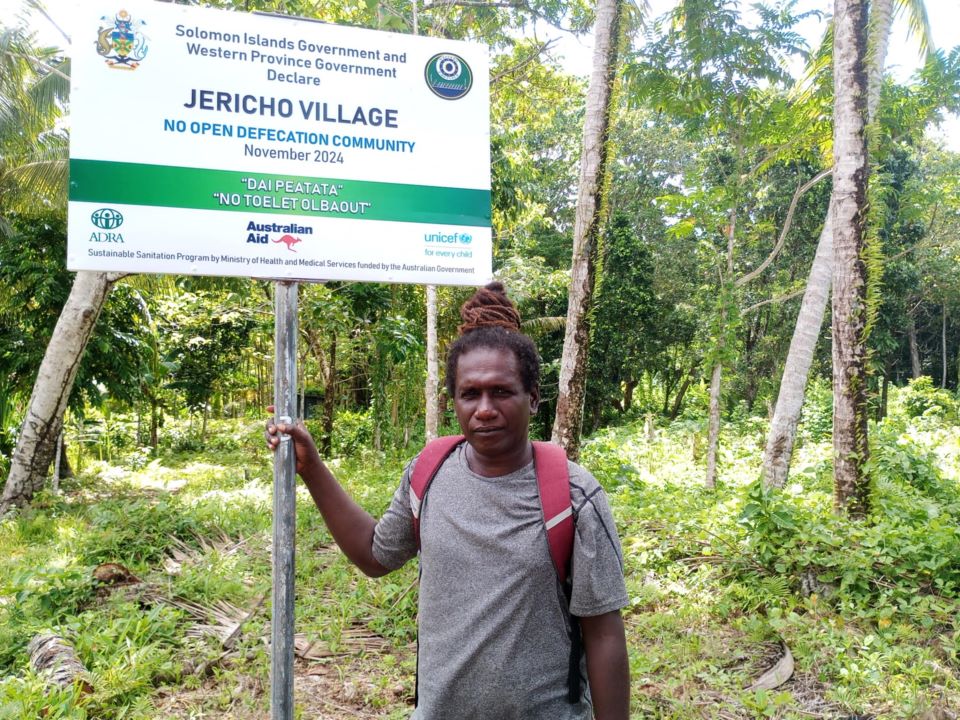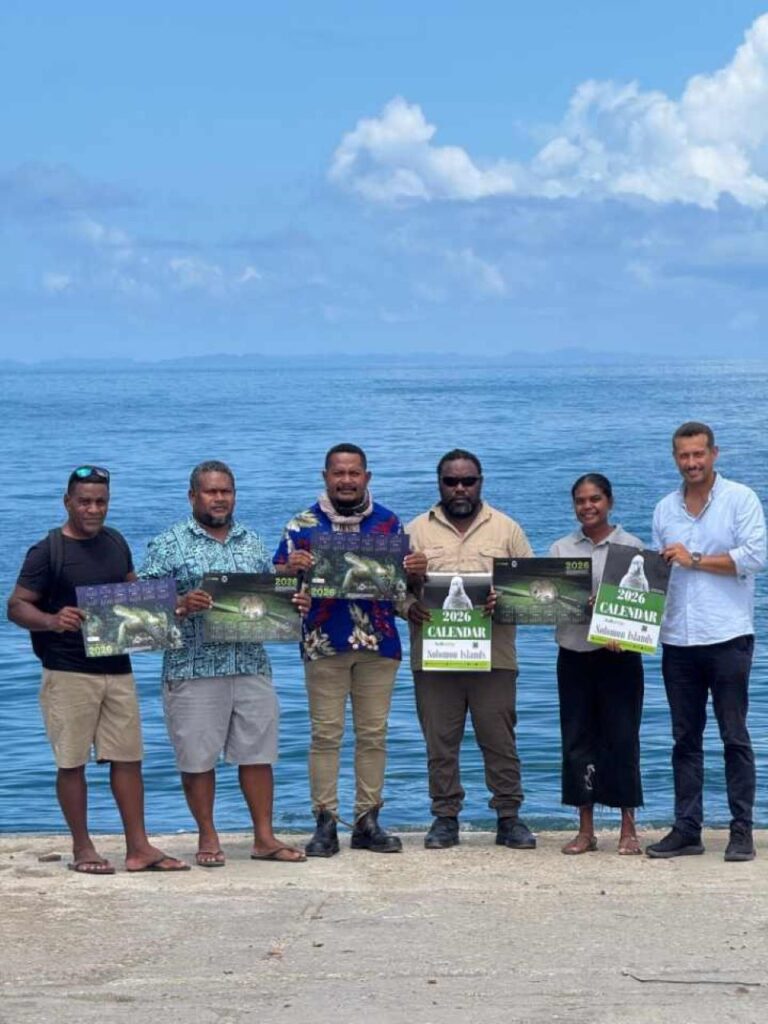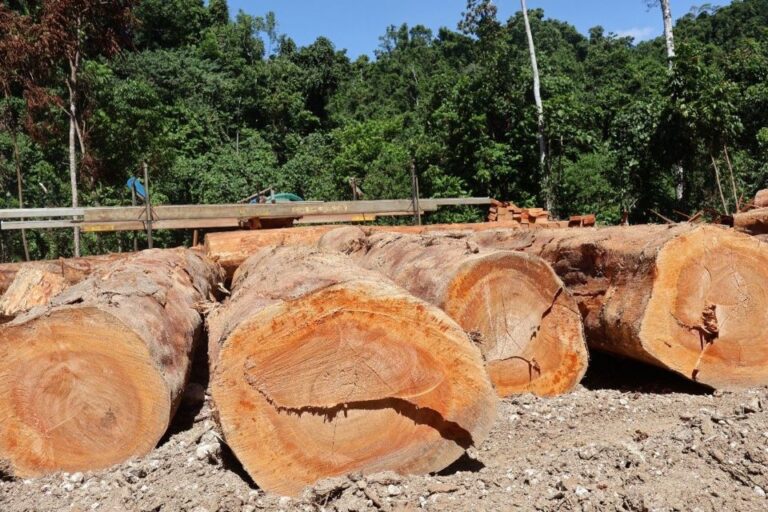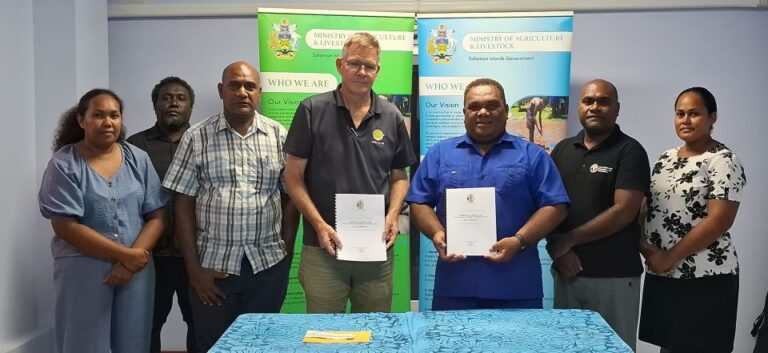From Musician to Become a Community Sanitation Champion
SWITCHING from one interest to another interest is a common occurrence today in the Solomon Islands.
Chris Panakera at the age of 45 famously known as “Chris Hamson,” has transitioned from being a popular musician to a community sanitation champion for Jericho Community in Central Rannogah of Western Province.
Mr Panakera who is part of Rannogah and Simbo Islands in Western Province has led his owned community to achieve a significant milestone: being declared No Open Defecation (NOD) on December 19, 2024.
No Open Defecation (NOD) is a campaign or initiative aimed at eradicating the practice of defecating in open spaces, such as fields, forests, rivers, or streets, rather than using proper sanitation facilities like toilets.

The NOD celebration was officially witnessed and attended by UNICEF Provincial Coordinator for Western Province, Junior Rauka, Western Provincial Government RWASH Team, Environmental Division of Western Provincial Government (WPG), ADRA Rannogah Team, Minister for Health and Medical Service for WPG, Hon Kenneth George, Chiefs and communities at ZION, Jericho and Mokeru in Central Rannogah.
This achievement marked a transformation for over ten households in Jericho Community, a united interdenominational community.
The project was part of the National Sanitation Sustainable Plan (NSSP) Phase Two program, which runs for one year for Rannogah and Kolobangara including Simbo Islands.
The project was funded by Australia’s Department of Foreign Affairs and Trade (DFAT) through UNICEF and implemented by ADRA.
Currently work on Simbo Island is ongoing to complete unfinished projects from Phase One.
In an interview with ADRA Media, Mr. Panakera expressed joy in his community’s achievement, acknowledging the challenges faced along the way.
“My community started working with the ADRA team at the beginning of this year when this project started implementation here in Rannogah’’

“We engaged in awareness sessions and Sato Pan demonstrations to inspire interest in constructing toilets. However, our biggest challenge was a lack of funds for materials to start the project,’’ Mr Panakera excitedly said.
The 45-year-old who is a well-known musician and known for his reggae hits across the Solomon Islands, decided to pause his music career to focus on the sanitation project.
“When this project came to my community, I chose to help, despite my passion for music. I stopped my island reggae music and shifted to spiritual gigs, but I was determined to see this project succeed through’’
“Balancing his role in the sanitation project and spiritual music commitments was not easy. This project was tough for our community because it required both time and money,” he added.
Mr. Panakera is renowned for his music, with his popular hits such as Kequa Makira and Pilisi Dia (in the Rannogah dialect), which dominated the top 10 island music charts in the early 2000s in the country’s local music countdown. While he was able to produce three albums, he chose to dedicate himself to community service, raising funds for churches in Rannogah, Vela, and some parts of Guadalcanal.
One major hurdle in the sanitation project was securing funds to construct toilet facilities.
He revealed that Convincing community members to build toilets was difficult due to financial constraints.
“We held several meetings and decided to raise funds through community marketing. With support from ADRA Rannogah, we are able to acquire materials to complete our sanitation project.”
“Without support from ADRA, we would not be able to celebrate NOD for our community and our community will continue using bush and seashore for open defecation. Today, the impact of the NSSP project is evident. “If this project hadn’t come to our community, we’d still be practicing open defecation,” Mr. Panakera happily said.
“Now, our elders no longer struggle to walk to the seashore for open defecation, and our children enjoy clean beaches for swimming and fishing. Open defecation is a thing of the past for us.”
He concluded by expressing gratitude. “On behalf of my community, I thank ADRA, UNICEF, and the RWASH team for their support. This project has brought a lasting impact, and we’ll never regret it.”
However, ADRA continues to implement the NSSP Sanitation Project across Rannogah, and Kolobangara including Simbo Islands in the Western Province.
The program was funded by DFAT through UNICEF and aims to enhance sustainable sanitation services at provincial and national levels while promoting improved hygiene practices.
The project has also been expanded to Simbo Island, where significant progress is being made in four key communities as part of Phase One’s completion efforts.
Jericho community was one of eight communities in Central Rannogah being declared NOD this year through the National Sanitation Sustainability Plan (NSSP) Phase 2 project currently implemented by the Adventist Development and Relief Agency (ADRA).
The project has already made a significant impact on communities across Central Rannogah Island, with more communities expected to achieve NOD status next year.
ADRA and UNICEF including RWASH Team in Gizo will continue to implement the project in Rannogaha including Simbo Islands and Kolobanagara.
UNICEF, RWASH, and ADRA, with joint combined effort, plan to NOD the whole island and not villages in their strategy plan.
Source: ADRA Media




